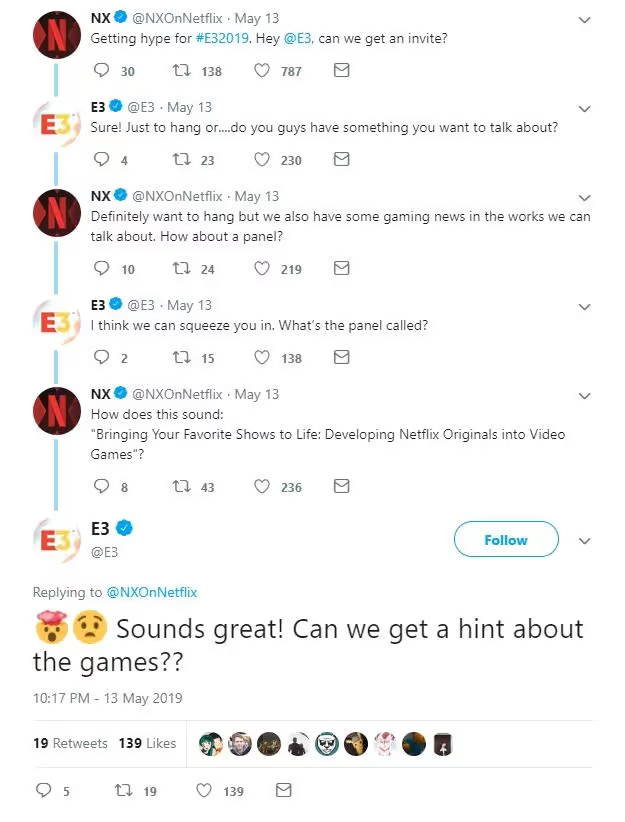A regular look at gaming-related stories from the past week or so whereby conclusions are drawn from anything and everything. These may be incredibly well reasoned based on events from the week. Alternatively, they may be highly speculative, drawn from very little evidence. More likely, they will be somewhere in between.
Conclusion One: Gender parity in gaming has almost been reached
Gaming has evolved over the last decade from a niche, male-dominated market to an inclusive entertainment activity which all genders can enjoy across a spectrum of platforms. New research released by gaming insight company Newzoo has shown that almost half of all gamers are female, amounting to over a billion players worldwide. The study covered the consumer habits of 30 different markets around the world and broke down typical gaming personalities into eight distinct groups, where female players accounted for 46% of the gaming population.
Of the gaming personality types, the Time Filler is by far the most popular amongst women. These are gamers who play to pass the time, for instance on mobile, and 19% of men fall into this category. However, a whopping 36% of women are Time Fillers, with Cloud Gamers coming in a distant second for 17% of women. The Cloud Gamer — people who prefer free-to-play or discounted titles and only pay for hardware when it is really required — is the most popular personality type for men, at 21%.

Interestingly, people who play games but also enjoy watching others play — known here as Popcorn Gamers — are split almost evenly between men and women at 13% and 14% respectively. Meanwhile, so-called Ultimate Gamers who immerse themselves in all aspects of gaming culture are skewed 2:1 in favour of men, but crucially the main demographic are aged 26-30, putting to rest the tired cliche of bedroom-bound teens being the main driver of the gaming industry’s enthusiast community.
There are plenty of interesting data snippets to pick through in Newzoo’s report, but the fact that we now have a comprehensive study showing that near parity now exists between gaming genders as well as could prove vital to publishers and developers when considering market segments to test against in future. We have proof that gaming is very much not a boy’s club, nor is it “just for kids” — and it's all the better because of it.
Conclusion Two: Obvious marketing stunt is obvious.
Wow — massive news! Ubisoft is making a new Splinter Cell. Think of all that Sam Fisher-related stealthy action. Amazing, no?
It depends. This jaded and cynical old-hand would be more surprised if Ubisoft was not working on a new version of one of its big — but admittedly downtrodden — franchises. Get it right, and you have a hit with a ready-made audience eager to play something good, from that canon.
So it’s not really a surprise to see this series of tweets from a creative director at Ubisoft:

It seems Mr Gerighty wasn’t supposed to tell people what he was working on. Or was he? The latter, of course. This is an experienced and senior individual working in one of the world’s foremost games developers and publishers, a few weeks ahead of E3. He accidentally announces something and then chases that with follow-up tweets rather than, you know, actually containing his misstep? Ubisoft followed up this "mistake" with a statement to PC Gamer saying that the entire thing was a joke but of course, no-one is going to believe that...
Absolute trolling from the team here, as they chose to pre-announce the revival of Splinter Cell to drum up interest and internet words in an ‘unofficial’ way so as to provide some level of plausible deniability (note to self — the irony that it’s worked is not lost at Jump Dash Roll). Expect a full-scale offensive come E3, unless this campaign highlights a significant negative, and dust your infrared goggles and stealth gear off in advance of Sam Fisher’s triumphant and not at all sneaky return.
Conclusion Three: Europe is showing America how to handle crunch.
Crunching is the name given to periods of game development where staff have historically been expected to put in excessively long hours for little — if any — reward. That all looks to change in Europe after the European Court of Justice this week ruled that employers must put systems in place to monitor the hours that staff work. The ruling follows a challenge by a labour union to a Spanish subsidiary of Germany's Deutsche Bank, which stated in response that Spain's laws were less exacting when it came to recording overtime, so they shouldn't be forced to do so. The ECJ disagreed, and the result means that employers in all EU countries now need to set up processes for recording hours which exceed their contracted time.
Given that crunch is rife within the gaming industry and has shown very few signs of being addressed, this decision is a positive first step in stopping workers from being coerced into working outside of their contracted hours with no recompense. The existing European Working Time Directive restricts employers from making staff work more than 48 hours a week, and grants at least 11 consecutive hours of rest every 24 hours. While some companies ask employees to opt out of this, the new ruling means that companies will still need to record the hours of their employees. This has already been implemented in Spain, where failure to do so (and to retain these records for four years) will result in hefty fines.
Though this is a small step in the fight for oversight of gaming industry practices, it is an important one. The implementation of the ruling is yet to be decided. It could be left up to companies to put in place, but as long as there is visibility by the governing body and public exposure of the amount of hours companies "ask" workers to do, there will theoretically be less incentive for them to implement crunch (which, let's be honest, is another way of saying "poor project management"). The US should take note... and they probably are; if European subsidiaries of big studios are forced to implement processes to improve employee rights in Europe, you can bet your shiny Euro that their sister studios across the pond will demand equal treatment. Change is coming, slowly, but surely.
Conclusion Four: Netflix is the new Netflix of gaming
Not content with alternating between Oscar-winning original drama and absolute garbage, Netflix this week announced that it was going to dive into the video game market with both feet. We've known for a while that a game of Stranger Things was on the way, but apparently that isn't all they are planning on releasing. And as we've seen already, this week seems to be a good one for using Twitter to fumble your marketing.
In a staged Twitter conversation with E3 so awkward you'd be forgiven for thinking it was written by a teen boy's idea of what human conversation looks like written down, the on-demand giant asked if it was possible to get an E3 invite, before announcing that they would like to host a panel named "Bringing Your Favorite Shows to Life: Developing Netflix Originals into Video Games".
Cue a "mind blown" emoji — and, inexplicably, a frowning emoji — in response from E3.

When artificially "pressed" for more information, Netflix stated that there was "more to come", but said nothing further. So it looks like we'll have to wait until E3 (11th-13th June) to see what else they're planning to release. Stranger Things, in the meantime, will be out on July 4th. American flag emoji, ghost emoji, I guess.
Conclusion Five: Symbiosis is delightful
Symbiosis, whilst originating from a biological standpoint, has been appropriated in recent years to mean the coming together of multiple parties for some benefit which otherwise wouldn’t be possible. It’s with arched eyebrows, then, that we notice Microsoft and Sony coming together in partnership with a view to “leveraging each company’s cutting-edge technology in a mutually complementary way will lead to the creation of new value for society.”
Delving deeper into this curious press release, it appears Sony wants to benefit from Microsoft’s cloud-computing capabilities (isn’t PS Now and the Gaikai platform good enough?), and its AI-based expertise, whilst Microsoft knows Sony is a leader in all manner of consumer products.
What does it mean for gaming? In the short-term nothing but goodness. Two companies sharing best practice and knowledge, within well-defined parameters of course, should elicit new and innovative output. If they hit on something significant for gaming though, what then? If both carry such technology forwards it all comes down to the execution — as it so often does. Would either company be willing to allow that, given their status in the gaming world? Perhaps one will think the collaboration worthless, separate and rue that day, just as Nintendo once did, with Sony no less.
In reality this means nothing at all right now. Both the Tokyo and Redmond-based behemoths will be far down the path to launching their next-gen consoles, and anything coming from this work will not be a part of it. By the time output is there each individual party’s research and development will have made interesting in-roads to the future and perhaps this work will be irrelevant? Or maybe, just maybe, we’ll get from it the next revolution in console hardware precipitating a jump similar to that seen with the advent of CD-ROMs, polygons and the PS1.
You can subscribe to Jump Chat Roll on your favourite podcast players including:
Let us know in the comments if you enjoyed this podcast, and if there are any topics you'd like to hear us tackle in future episodes!


